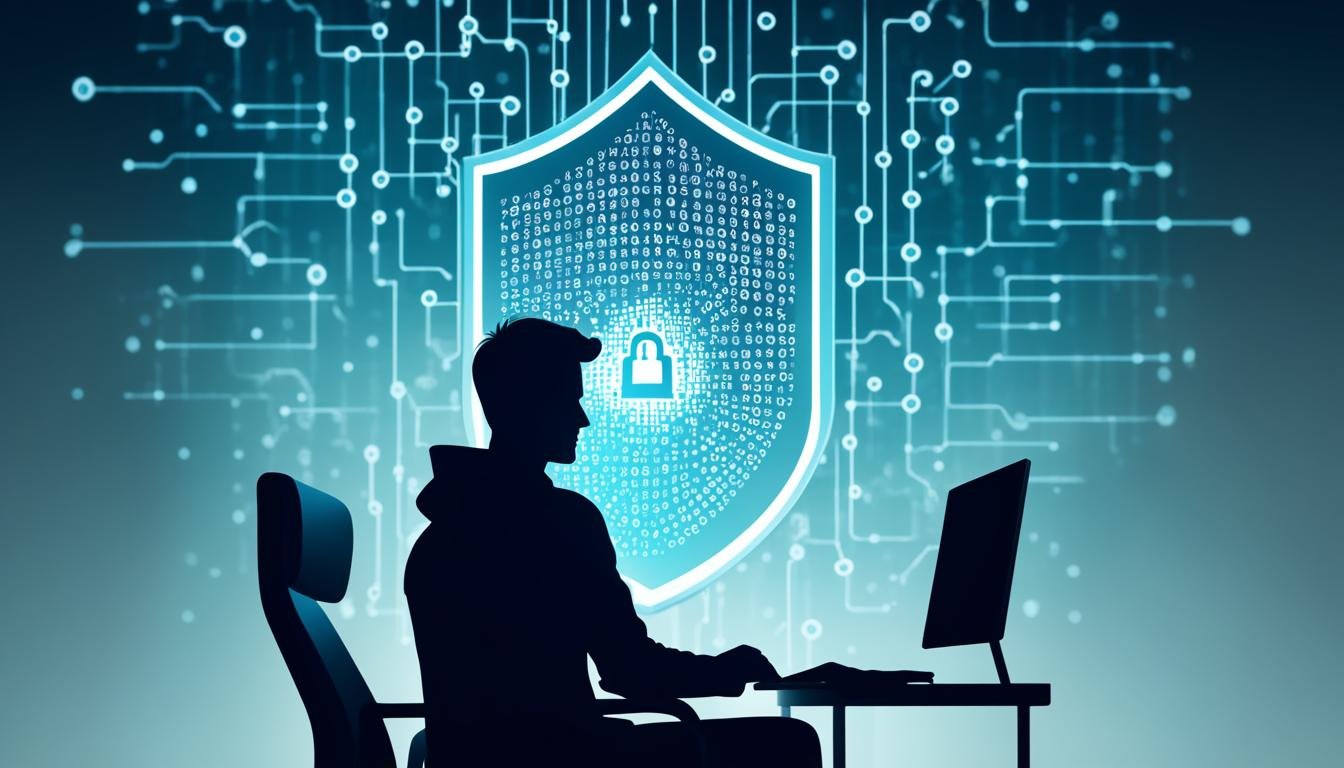Did you know over 3.6 billion people use social media platforms like Facebook, Instagram, and Twitter? This huge number has made us share more personal data online. Now, we face big worries about our online privacy and data security. Tools like web scraping and data crawling are getting more common. It’s important to know the risks and how to keep your personal information safe.
This article looks into the complex topic of online privacy. We’ll talk about the issues, the risks, and how to scrape the web safely. By the end, you’ll know how to protect your online life in a world where data is everywhere.
Key Takeaways
- The growth of social media has made us worry more about our privacy and data security.
- It’s important to understand how privacy affects users to keep social media platforms going.
- Using web scraping and data mining responsibly helps protect our personal info and keeps users trusting these platforms.
- Using privacy tools and following online privacy rules can lower the risks of data breaches and unauthorized access.
- Finding a balance between using data for insights and keeping it private is a big challenge for online platforms and users.
Understanding User Privacy Concerns in Online Social Networks
Online social networks (OSNs) are everywhere, letting people talk, share, and keep up with friends. They help us feel connected and part of a community. But, worries about privacy are making people think twice about what they share online, which could hurt these platforms in the long run.
Introduction to Online Social Networks
Being active on OSNs means sharing parts of your life with others. People post updates and photos to show who they are and what they like. This sharing is key to how OSNs make money.
User Self-Disclosure and Identity Construction
On OSNs, you can choose what you share, helping you shape your online identity. People use these platforms to show off the best parts of themselves. But, since these platforms are linked to real life, people can’t just make up who they are. This keeps things more honest.
Rising Privacy Concerns and User Behavior
More people are getting worried about their privacy on social networks. These worries make it harder for users to control what others see and think about them. If people can’t feel safe sharing, they might stop using these sites. This could hurt how well OSNs work and their value to everyone.
| Key Aspects | Description |
|---|---|
| Identity Construction | OSNs allow users to curate their public persona, presenting an idealized version of themselves. |
| Self-Disclosure | User-generated content on OSNs is crucial for maintaining relationships and the commercial success of these platforms. |
| Privacy Concerns | Growing privacy issues are altering user behavior and threatening the long-term sustainability of OSNs. |
Identifying Privacy Threats in Online Social Networks
As more people use Online Social Networks (OSNs), researchers have found two main privacy risks. These are identity disclosure and attribute disclosure. It’s important for users and those who share data to know about these risks to protect privacy.
Identity disclosure means linking a person to their data in a public dataset. This can happen when personal info like names or addresses gets shared by mistake. This breaks the user’s privacy.
Attribute disclosure is when someone can guess new info about a person from shared data. This could be about their hobbies, what they do, or who they know. This info might be something they keep private.
These privacy threats in OSNs make it crucial for data publishers to be careful. They need to clean up user content before sharing it. Keeping user privacy safe is key to keeping trust and using social media responsibly.

“The digital revolution has brought unprecedented benefits, but also new privacy threats that we must address to safeguard individual rights and social cohesion.” – [Expert Name], Privacy Researcher
Dimensions of Privacy Concerns on Online Social Networks
Privacy issues on online social networks (OSNs) have two main parts: threats from the company and threats from other users. These challenges show how complex privacy problems are for users online.
Organizational Threats
Organizational threats come from how OSNs handle user data. Users worry about secondary use of information, improper access, and data breaches. They question the OSN data handling practices, which can make them less trust the platforms. This leads to changes in how they share personal info.
Social Threats from User Environment
Social threats come from other users and how they see and use our info. Users fear misuse of information by friends and can’t always control who sees their posts. They worry about their online self-presentation and impression management on OSNs. These issues affect how users share and present themselves online.
It’s important to understand the different types of privacy concerns on OSNs. This helps users make better choices about their online actions. It also helps them protect their privacy.

Impact of Privacy Concerns on Self-Disclosure Strategies
Online social networks (OSNs) are now a big part of our lives. Privacy worries have become a big deal for users. These worries change how people share information on these networks.
Amount of Information Disclosed
Studies show that users share less info on OSNs because of privacy concerns. They pick and choose what they share to avoid risks. This careful sharing helps protect their privacy and keeps the platforms safe.
Honesty in Self-Presentation
Privacy worries also affect how real people are on OSNs. These platforms let users show a perfect side of themselves. But, privacy concerns make people more careful and less open about what they share. They try to avoid sharing things that could be misused or cause trouble.
Conscious Control over Information Sharing
Privacy concerns also make users think more about what they share on OSNs. They are more careful about sharing personal info. This careful thinking changes how they use OSNs and affects their experience on these platforms.
Privacy and self-disclosure are closely linked on OSNs. Users are trying to find a balance between sharing their lives and keeping their info private. This balance changes how people act on these networks.

Best Privacy Tools and Services
In today’s digital world, keeping your online privacy safe is key. Luckily, there are many tools and services that can help. These include encrypted messaging apps and virtual private networks (VPNs).
Encrypted Messaging Apps
Apps like Signal and WhatsApp use end-to-end encryption. This means your messages and data stay private. With these apps, you can keep your online chats safe and secure.
Virtual Private Networks (VPNs)
VPNs are another great way to protect your online privacy. They create a secure connection to the internet. This way, your online actions and IP address are hidden. It makes it harder for others to track you or see restricted content.
| Encrypted Messaging Apps | Virtual Private Networks (VPNs) |
|---|---|
| Offer end-to-end encryption to secure communication | Create a secure, encrypted connection to the internet |
| Enhance confidentiality and security of online interactions | Mask online activity and IP address to protect user privacy |
| Examples: Signal, WhatsApp | Provide anonymity and access to restricted content |

“Protecting one’s digital privacy is no longer a luxury, but a necessity in today’s connected world.”
Id crawl: Exploring Online Privacy Concerns
In today’s digital world, idcrawl has brought up big talks about online privacy. Idcrawl is a service that helps users pull data from the web, including social media. While it has good uses, it also brings up privacy worries. It can collect and combine personal info without people knowing or saying yes.
Idcrawl and other data scraping tools can be misused. They can grab a lot of personal data protection. This data might be used in ways people don’t want. It makes us think about what’s right and legal when collecting and using data.
As idcrawl and similar tools get more popular, we all need to know the privacy concerns they bring. We need to have clear rules for collecting data and strong ways to protect it. This helps keep online users’ privacy safe and builds trust in the digital world.
“The right to privacy is one of the most important human rights in the digital age, and it must be protected with vigilance.”
Learning about idcrawl and other data scraping helps us aim for a safer, clearer digital space. Here, our personal info is valued and kept safe.
Responsible Web Scraping and Data Mining Practices
Web scraping and data mining tools like Id crawl are getting more popular. It’s key to use them responsibly and protect privacy. This means getting user consent, keeping data anonymous, and following rules for personal info.
Using web scraping and data mining ethically helps organizations get valuable insights. At the same time, it keeps online users trusting them. This balance is crucial in a world where privacy matters a lot.
Principles of Ethical Data Collection
- Get clear user consent before taking personal data
- Make data anonymous to protect people’s privacy
- Follow rules and guidelines for ethical data collection
- Use strong security to protect the data
Responsible Data Mining Practices
- Tell users why you’re collecting data and what you’ll use it for
- Check and update your data policies often
- Give users control over their personal info
- Use the data only as agreed upon
| Best Practices | Benefits |
|---|---|
| Get user consent | Builds trust and keeps user privacy safe |
| Anonymize and aggregate data | Keeps identities safe and offers useful insights |
| Follow industry guidelines | Keeps you in line with laws and lowers legal risks |
By following these privacy-preserving practices, organizations can use web scraping and data mining wisely. This way, they respect ethical data collection principles. It helps users and makes data-driven projects more credible and sustainable.
Protecting Personal Information from Id crawl
In today’s digital world, keeping your personal info safe from web scrapers like Id crawl is key. Luckily, there are many tools and ways to keep your online life private. These can help lower the chance of your data getting out.
Browser Extensions and Ad Blockers
Using browser extensions and ad blockers is a smart move to protect your info. These tools can stop trackers and ads from collecting data on what you do online. By adding privacy-focused browser extensions, you make it harder for web scrapers to get to your data privacy protection.
Internet Privacy Guidelines
It’s not just about tech tools. Following internet privacy best practices is also key. This means being careful with what personal info you share online. Also, check and change your privacy settings often on social media and other sites. Being aware of how your online actions might affect you can help keep your online data protection safe.
“Protecting your personal information in the digital age is crucial. By leveraging browser extensions, ad blockers, and following established internet privacy guidelines, you can take control of your online privacy tools and safeguard your data from services like Id crawl.”
Remember, data privacy protection is everyone’s job. By taking these steps, you help keep your personal information security safe. This way, you can stay in control of your online life.
Conclusion
Online social networks have grown a lot, raising big concerns about our privacy. They gather a lot of data from us, which can be useful but also risky. This data can reveal our identities and personal info.
Experts say there are two main privacy issues with these networks. One is from the companies running them, and the other is from other users. It’s important to understand how these affect how we share our lives online.
With tools like Id crawl, the need for safe data handling is more urgent than ever. By using privacy tools and ethical data practices, we can make the internet safer. This way, we can focus on online privacy, data protection, web scraping, and data mining in a responsible way.

Leave a Reply